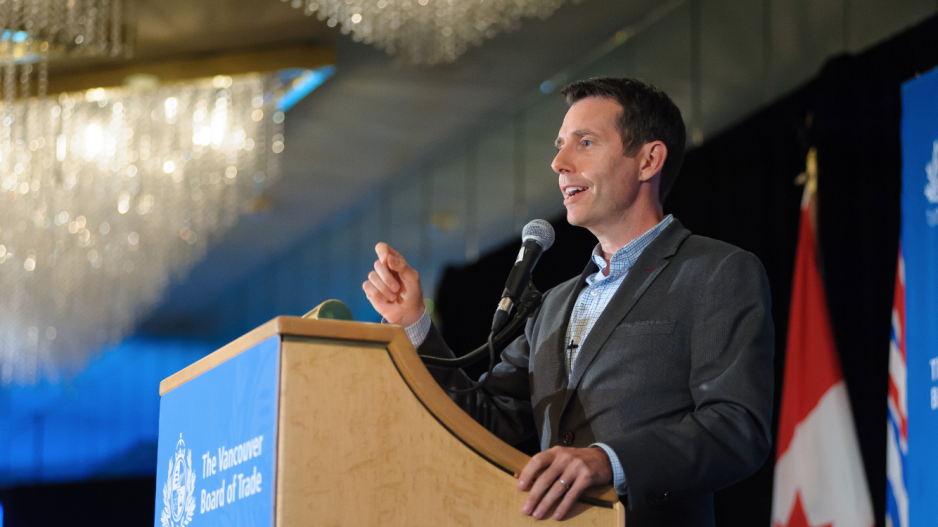Uber wants to be in Vancouver – but does the city or the province want the ride-sharing service?
Uber chief adviser David Plouffe told a packed ballroom at a Vancouver Board of Trade lunch September 25 the city was one of the company’s most coveted markets.
It has the density, it has the need, but it doesn’t have a mandate from any level of government.
“We’re eager to engage with local government, provincial government, to find a way forward so that we can bring ride share here,” Plouffe, a former senior adviser to U.S. President Barack Obama, said during his speech. “Once we’ve established the rules of how we can operate, then let’s work together on job training programs; let’s think about how to move people with disabilities around better in the city.”
Uber allows customers to use their smartphones to order and pay for rides in vehicles driven mostly by non-professional drivers. It operated briefly in Vancouver in 2012.
When the province’s Passenger Transportation Branch (PTB) determined the San Francisco-based company was operating as a limo service and was required to fall in line with regulations covering that industry, Uber pulled out of Vancouver.
Whispers of Uber’s return persisted, ramping up in summer 2014, but the local taxi industry filed a lawsuit against the company a few months later to prevent it from entering the market.
Despite Uber’s setbacks, Catherine Kargas said the provinces and municipal governments are taking the lead in integrating technology with vehicles.
The Electric Mobility Canada chairwoman said Ottawa seems to treat advancements in areas like autonomous vehicles as something out of science fiction.
“The Government of Canada doesn’t seem to have evolved at the same pace as its U.S. counterpart or European counterparts or even Asian counterparts,” Kargas said during a panel at the Carsharing Association’s September 23 conference in Vancouver.
She added Industry Canada has been willing to invest resources in connected cars – vehicles that are linked to the Internet to provide navigation and entertainment services – but that’s about it.
While Plouffe said ride-sharing services are key to reducing congestion and improving the environment, Kargas said autonomous vehicles are more likely to accomplish those goals.
She said the Ontario government will likely announce regulations for autonomous-vehicle testing within the province before the end of the year. Kargas noted that the province’s strong links to the auto sector require it to keep up with global technological changes.
While both experts said the technological advancements they’re championing will reduce the number of cars on the road, foot-dragging from different levels of government has made them difficult to implement in Canada.
But Vancouver Coun. Geoff Meggs, who attended Plouffe’s speech, said he was skeptical of some of Plouffe’s claims.
He pointed out Uber has yet to go through the right channels, in this case the PTB, to operate within B.C.
And while the City of Vancouver has taken some heat for not pushing for Uber, Meggs said he doesn’t believe it’s the city government’s job to lobby the province on behalf of any particular tech company.




